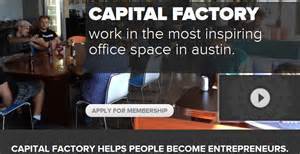
10 Start-up Incubators to Watch
1.TechStars
Founded in 2006, TechStars is one of the country’s most prestigious incubators. Its four locations in Boston, Boulder, New York City, and Seattle, host 10 teams for three months of the year on rotation, funding each team member between $6,000 and $18,000. More than 600 teams applied last year, making TechStars one of the country’s most competitive incubators. TechStars focuses on technology companies with transnational appeal, and requires a 6 percent equity stake in any new companies that are funded. Each program ends with a pitch event with venture capitalists and other investors.
Michael Gaiss, a senior vice president at Highland Capital Partners, decided in 2007 that an in-house incubator might be an ideal way for investors to acquaint themselves with next-generation entrepreneurs. The program took a hiatus last year, but has returned this summer to host 11 teams spread across locations in Boston and the San Francisco Bay Area. The incubator has accepted applications from companies with a variety of different ideas in past years, but decided to narrow its scope to technology companies this round. Teams of two-to-four members receive $15,000, along with office accommodations from early June through the end of August.
DreamIt Ventures began hosting start-ups in Philadelphia in 2007. Recently, the incubator expanded to New York City, where 12 of its alumni companies are based. Offering $5,000 for each additional team member (up to $25,000 for a team of five), DreamIt makes available a bit more seed funding than the average incubator. Like other top-tier incubators, DreamIt provides successful applicants with mentorship from entrepreneurs, as well as legal, accounting, and administrative help, and a demonstration day during which teams present their fledgling companies to investors.
Flashpoint doesn’t look for the latest location-based app or daily deals scheme. This incubator based in Washington, D.C., was founded in 2003 to provide space and supplemental financial support to nonprofit arts organizations in the Beltway. The average Flashpoint business has just one, two, or three paid staff members, and receives technical support, professional development, and office equipment during residency. Notable alumni include Irish contemporary arts group Solas Nua, professional dance company Step Afrika!, and Washington Improv Theater.
7. Capital Factory



